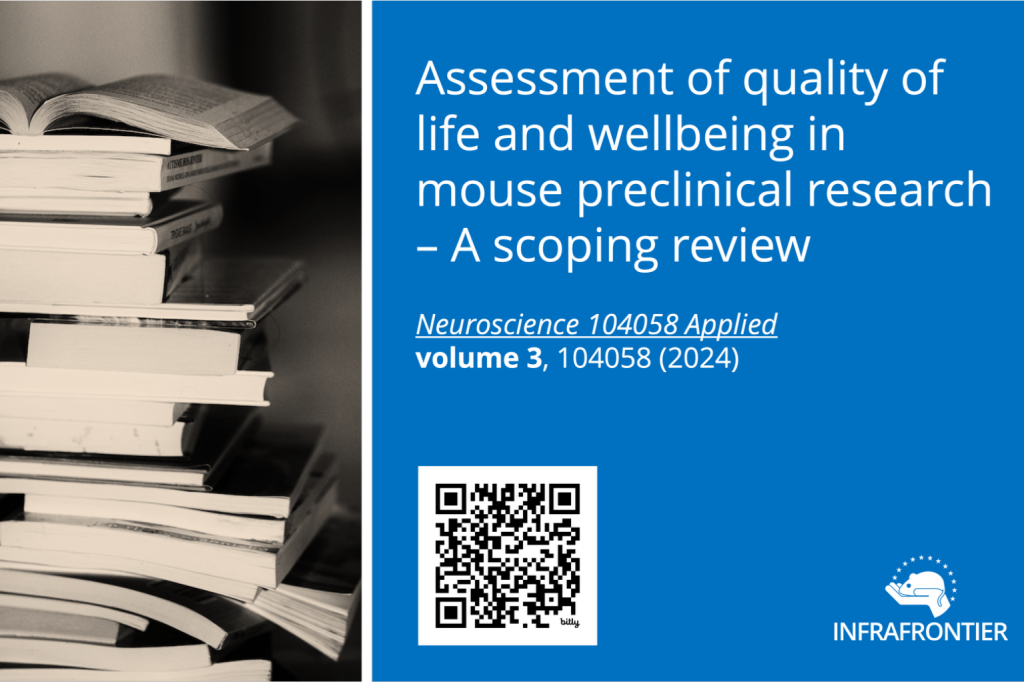Assessment of Quality of Life and Wellbeing in Mouse Preclinical Research – A Scoping Review
New publication by INFRAFRONTIER and the German Mouse Clinic at Helmholtz Munich
The article discusses the importance of using mice in preclinical research to understand human diseases and test treatments. It highlights that while researchers use standardised methods to study mice, these don’t always predict human clinical trial results. Specifically, measures of quality of life (QoL) and wellbeing (WB) are commonly used in human medicine but are rarely monitored in mouse studies.
A scoping review was conducted to see how QoL and WB are assessed in mouse research over the past 13 years. As a general rule, WB has been measured more often than QoL in mice. Despite that, instruments measuring WB were commonly used in neurology but less frequently in behaviour and psychiatric research articles. The review found significant variability in the QoL and WB instruments, procedures, and sample sizes used in mouse studies, indicating a lack of consensus on measurement standards in the field. This lack of standardisation makes it hard to translate findings from mice to humans.
The authors suggest that the mouse research community should standardise QoL and WB assessment protocols to improve the relevance of mouse studies to human clinical trials.
Original publication:
Sanz-Moreno A, da Silva-Buttkus P, Terwee C B, Raess M, Fuchs H, Gailus-Durner V, Hrabě de Angelis M. Assessment of quality of life and wellbeing in mouse preclinical research – A scoping review. Neuroscience Applied (2024). DOI: 10.1016/j.nsa.2024.104058
Supported by CORBEL Project
